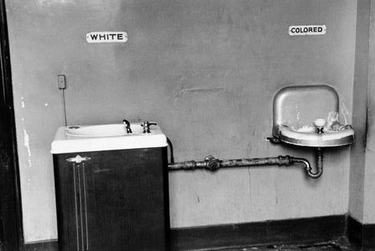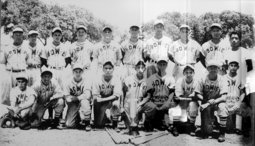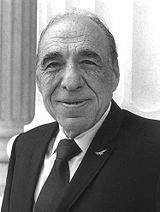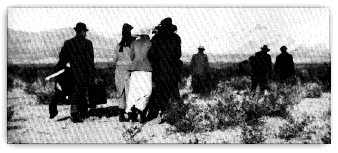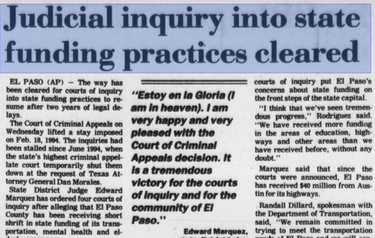From The Senator's Desk. . .
December 17, 2009
“Live Strong, Really Care, Let Live”
“Right now, in all Texas, El Paso is the best place to be. One reason is this—each day, we live strong, really care and let live.” Just what does that mean?
Let’s take look at some Texas history. In the 1940’s and 50’s, Texas was the last large Southern state. Across the South, Governors like Ross Barnett blocked black students access to the University of Mississippi, and here in Texas, Governor Shivers ordered Texas Rangers to prevent black students from entering high school. Jim Crow laws systematically discriminated based on race. Here in El Paso, Hispanics were forced to drink from public water fountains that said ‘colored only’.
Written by Senator Eliot Shapleigh, www.shapleigh.org

“Live Strong, Really Care, Let Live”
“Right now, in all Texas, El Paso is the best place to be. One reason is this—each day, we live strong, really care and let live.” Just what does that mean?
Let’s take look at some Texas history. In the 1940’s and 50’s, Texas was the last large Southern state. Across the South, Governors like Ross Barnett blocked black students access to the University of Mississippi, and here in Texas, Governor Shivers ordered Texas Rangers to prevent black students from entering high school. Jim Crow laws systematically discriminated based on race. Here in El Paso, Hispanics were forced to drink from public water fountains that said ‘colored only’.
After fighting for us in Germany and Korea, soldiers came back from war to read want ads that said ‘whites only need apply.’
During these years, a family friend of ours had to travel east to college in Commerce, Texas only at night, to avoid being stopped in small towns like Ozona along the way. In 1949, on the eve of the big game, the state champion Bowie Bear baseball team slept on cots in the locker room in Memorial stadium because back then, for them, Austin hotels barred access to beds. A member of the 1949 Bowie Bear baseball team, Gus Sambrano said “We were there representing the hispanic community, and we wanted nothing else but to prove that we were just as equal as anyone else.”
Here in El Paso, a young city alderman named “El Pajarito” sat down to eat at The Oasis restaurant in spring of 1962, along with his friend. Both men had grown up in Segundo, a barrio on the “other side of the tracks”, south of Downtown, right along the Border. One was white; one was black. On that day, the black man was told “we don’t serve blacks.” The City alderman told the owner ‘you can’t treat my friend like that’—and vowed then to change El Paso. His name was Bert Williams. He later became Mayor of El Paso. The other man was Nolan Richardson. He later won the NCAA National Basketball Championship while coach of the Arkansas Razorbacks.
Bert Williams went back to his office and drafted the first anti Jim Crow laws in Texas. His new ordinance stated that every person was entitled to rights under the U.S. Constitution—and barred restaurants from discriminating on the basis of race. In 1962 when the new ordinance came up for vote, Mayor Ralph Seitsinger vetoed the ordinance—but Pajarito prevailed. Despite harsh criticism, Bert William's led a unanimous override, and this was the moment that set the stage for change all across Texas. Five years earlier, in May of 1957, Texas Senator Henry B. Gonzalez filibustered some of the same Jim Crow laws in the longest filibuster in Senate history—36 hours.
Today, some may be surprised to discover that African Americans are the wealthiest ethnic group in El Paso—testament to generations of military men and women from the Buffalo Soldiers to Operation Iraqi Freedom who decided that El Paso was the best place to raise a family, start a business and succeed in life free from racism that so afflicted the South.
How about Herlinda Chew? In the 19th early 20th centuries, El Paso was one of the most important stops for Asians “underground railroad.” During this time, many early Asian male immigrants would marry Mexican and Mexican-American women, creating early biracial communities. When the Mexican Revolution began, the Chinese fell victim to inhumane treatment. Hundreds from biracial communities, were killed by the revolutionaries. A biracial young woman by the name of Herlinda Wong Chew, helped about 200 Chinese-Mexicans escape from Pancho Villa into El Paso during the Mexican Revolution. Today, her grandson is on the El Paso Court of Appeals, her granddaughter is District Judge in the 327th District Court and another granddaughter is running for Probate Court #1.
Fast forward now to the early 1990’s, when State District Judge Eduardo Marquez asked basic questions about democracy in Texas. He asked tough questions like, “Why did the Austin Highway District get $180 million in state funding in the same year that the El Paso District got $26m when both cities were the same size? Why did generations of El Pasoans with serious mental health issues have to travel nearly 300 miles to get any state help at all? Why after so many years did all Hispanic Texas have less than ten PHD programs while Lubbock with far less population had sixty five?” With his El Paso Court of Inquiry, Judge Marquez set the stage for the modern history of Texas, by asking whether every Texan, no matter where he or she was born was entitled to a good school, a basic highway system, access to college and the basic state services of this great state.
For us, living strong—really caring---and letting others live to reach all that they can be is a value that we hold dear.
![]()
![]()
Related Stories
